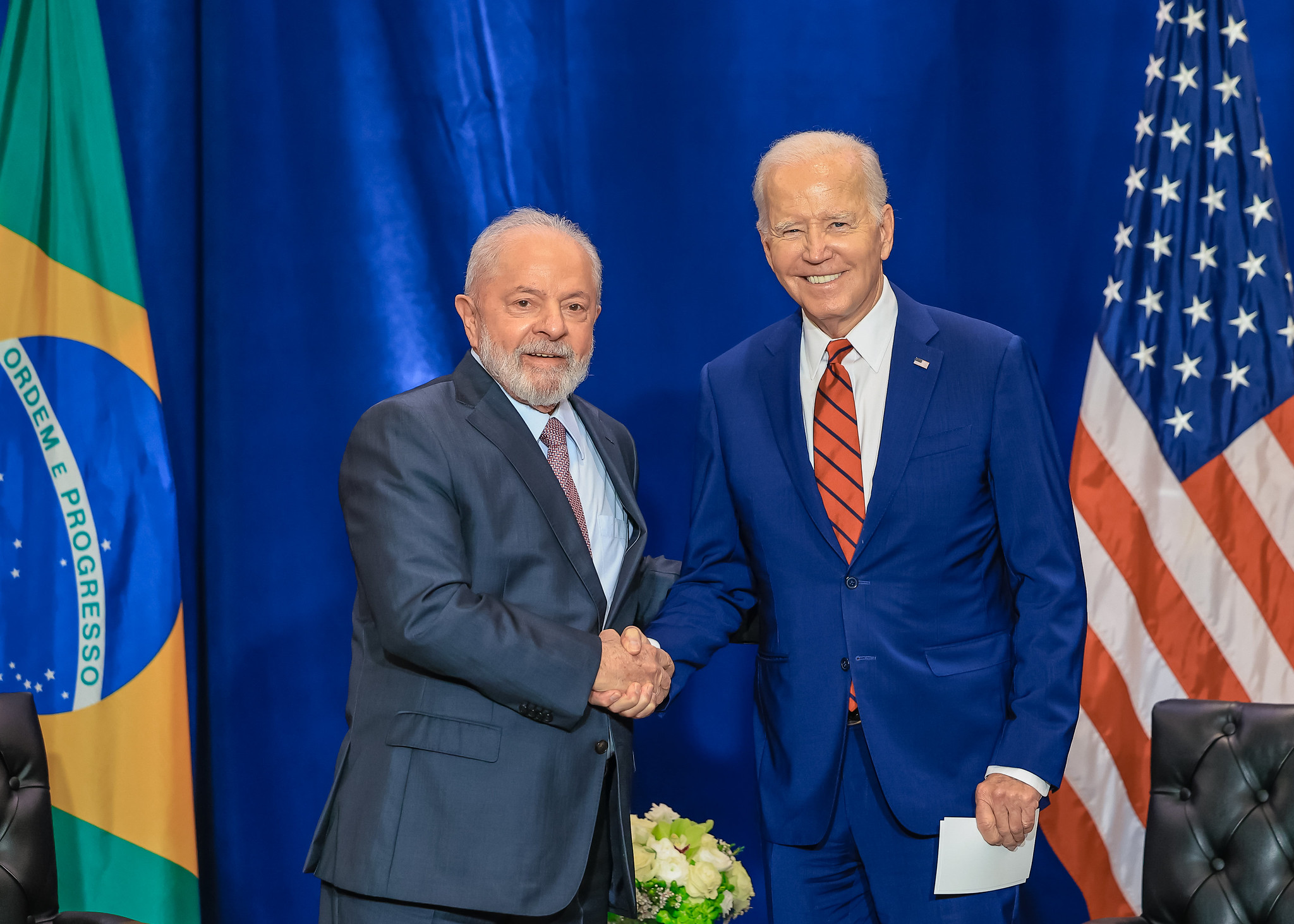
Julio Colby is a student at Harvard Law School.
In Today’s News & Commentary: President Biden and Brazilian President Lula announce Partnership for Workers’ Rights at UN General Assembly; and the Government Accountability Office finds Julie Su can continue serving as acting Secretary of Labor indefinitely.
On Wednesday, President Biden and President Luiz Inacio Lula da Silva (known as “Lula”) of Brazil announced a Partnership for Workers’ Rights between the United States and Brazil to improve labor conditions in the two countries. At a sideline press conference during the UN General Assembly with President Lula and Director-General of the International Labor Organization (ILO) Gilbert Houngbo, President Biden called his administration “the most pro-union administration in American history” before outlining the key goals of the Partnership. The Partnership will focus on: 1) ending forced labor, child labor, and worker exploitation; 2) promoting safe and decent work and holding countries and companies accountable; 3) advancing “a worker-centered clean energy transition”; 4) ensuring AI and other new technologies benefit workers; and 5) tackling workplace discrimination. President Biden closed by inviting “every global leader and every labor organization to join us and commit to a better future.” For his part, President Lula, founder of Brazil’s Worker’s Party and former president of his local Steelworkers’ Union, commended the American labor movement and President Biden’s leadership on labor issues; touted the wage increases, job growth, and new equal pay laws in Brazil under his administration; and promised that the US and Brazil would lead the fight for decent work in international fora moving forward. According to US officials, part of the implementation will mean greater scrutiny on accountability in public and private investments.
On Thursday, the Government Accountability Office (GAO) found that Julie Su can continue serving indefinitely as acting Secretary of Labor. Su has been heading DOL since Secretary Marty Walsh stepped down on March 11 of this year, and she was nominated by President Biden to replace him. But recent reporting had suggested that, lacking the key support of Democratic Senators Joe Manchin and Krysten Sinema, the White House appeared ready to “move on” from her nomination and leave her in the acting role indefinitely. That decision has faced legal scrutiny from House Republicans, who claim Su’s continuing service violates the time limits for acting officials set out in the Federal Vacancies Reform Act. But in a report requested by House Education and the Workforce Committee Chair Virginia Foxx, the GAO disagreed. In its decision, the congressional watchdog organization clarified that Section 552 of the DOL statute — not the Federal Vacancies Reform Act — governs the time limitations of the acting Secretary of Labor position. “Section 552 expressly limits the period of acting service after the Secretary of Labor resigns to the time at which a successor is appointed.” As such, “if Ms. Su continues to serve as Acting Secretary pursuant to section 552, she may continue to serve in that position until a successor is appointed.” Since the White House lacks the votes to confirm Su’s nomination, that means she is likely to remain acting Secretary indefinitely, or at least until the end of President Biden’s first term. Though the GAO’s decision gives Su’s DOL leadership additional legal backing, she still faces challenges from House Republicans who have introduced legislation that would explicitly apply the requirements of the Federal Vacancies Reform Act to vacancies in the office of the Secretary of Labor, and industry groups who have floated possible litigation challenging her role as unconstitutional.






Daily News & Commentary
Start your day with our roundup of the latest labor developments. See all
February 17
San Francisco teachers’ strike ends; EEOC releases new guidance on telework; NFL must litigate discrimination and retaliation claims.
February 16
BLS releases jobs data; ILO hosts conference on child labor.
February 15
The Office of Personnel Management directs federal agencies to terminate their collective bargaining agreements, and Indian farmworkers engage in a one-day strike to protest a trade deal with the United States.
February 13
Sex workers in Nevada fight to become the nation’s first to unionize; industry groups push NLRB to establish a more business-friendly test for independent contractor status; and UFCW launches an anti-AI price setting in grocery store campaign.
February 12
Teamsters sue UPS over buyout program; flight attendants and pilots call for leadership change at American Airlines; and Argentina considers major labor reforms despite forceful opposition.
February 11
Hollywood begins negotiations for a new labor agreement with writers and actors; the EEOC launches an investigation into Nike’s DEI programs and potential discrimination against white workers; and Mayor Mamdani circulates a memo regarding the city’s Economic Development Corporation.